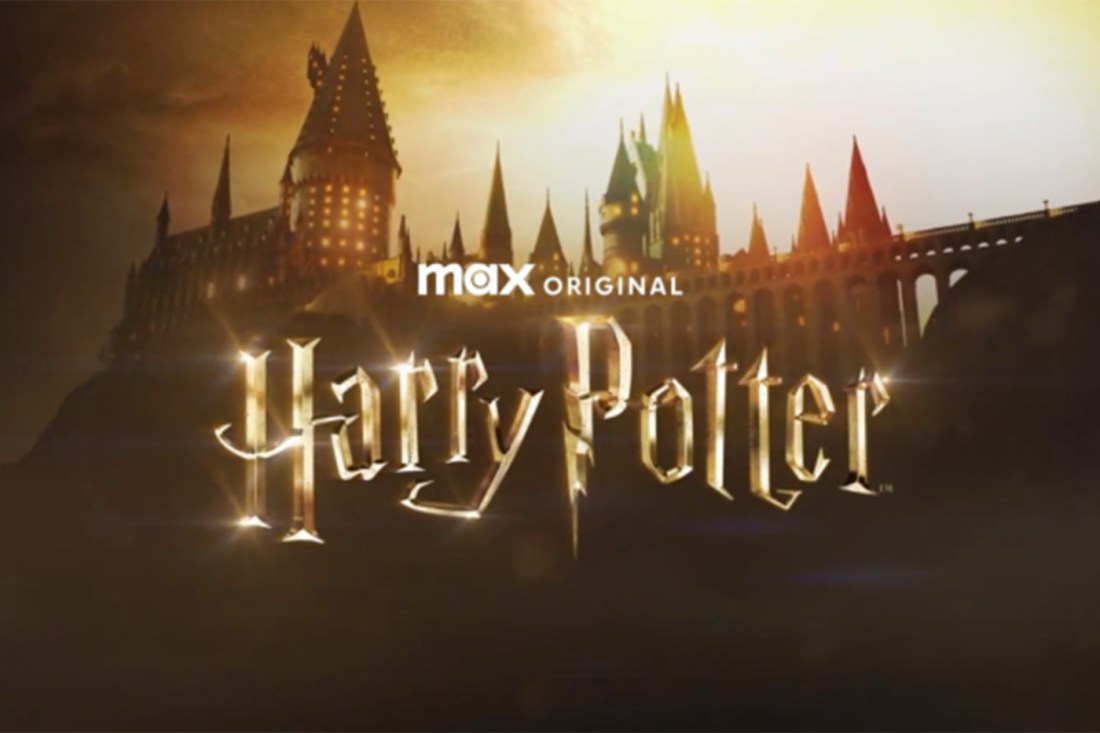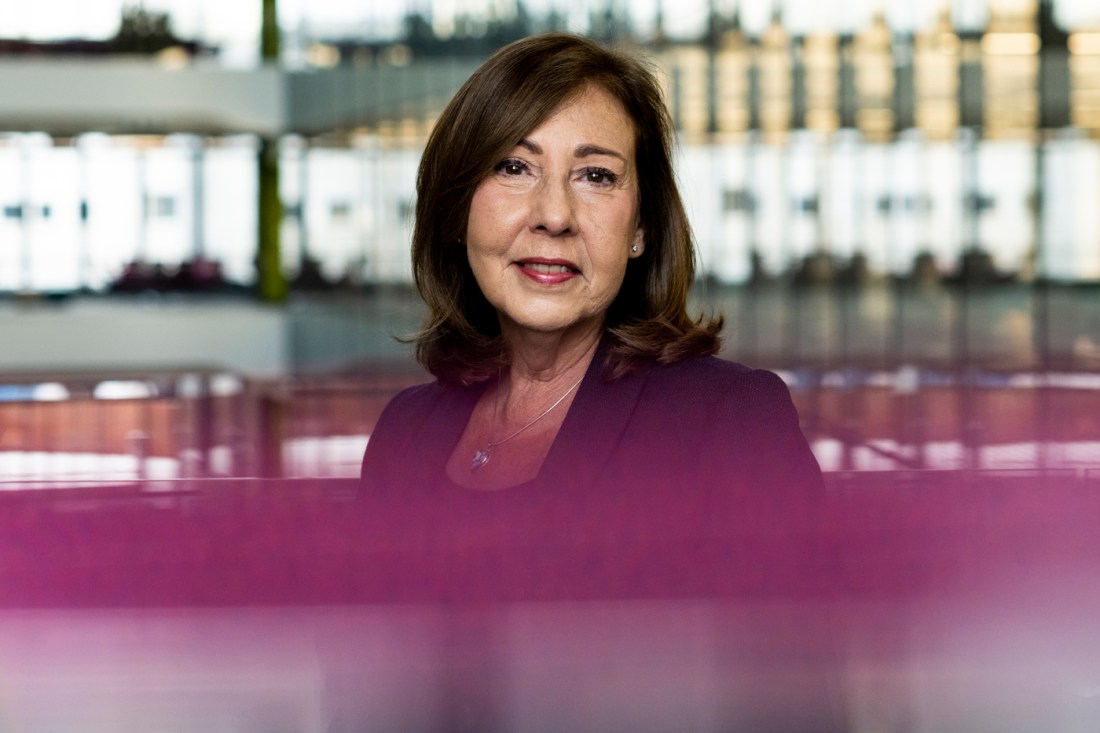Unlike the halcyon days of Potter fandom at the turn of the millennium, many fans may now feel conflicted about the franchise in light of controversies swirling around Rowling’s politics.

Harry Potter is back in a big way, with HBO committing to a brand new TV series — an in-depth dive into J.K. Rowling’s wizarding world.
But unlike the halcyon days of Potter fandom at the turn of the millennium, many fans may now feel conflicted about the franchise in light of controversies swirling around Rowling’s politics.
Rowling has been described as a “trans-exclusionary radical feminist,” a label that critics say reflects the author’s past transphobic statements, while defenders insist she’s been unfairly maligned and a victim of cancel culture. Rowling herself said she is “very involved” in the production of the TV series, and noted that her anti-trans views “haven’t affected the casting or hiring of writers or production staff.”
This month, images of the child stars playing the trio of Potter, Hermoine Granger and Ron Weasley emerged. The show’s release date has yet to be announced.
Laurie Kramer, a professor of applied psychology at Northeastern University, says now more than ever is the time to have “an open and frank discussion” about the values and messages children and teens are exposed to — particularly in the larger debate about Rowling and her work. We spoke to her about how parents should navigate those conversations with teens and young children.

Kramer’s comments have been edited for brevity and clarity.
For parents who might be struggling with their own feelings about the Harry Potter franchise — and may be asking themselves whether it’s right to expose their children to it — how would you counsel them?
I see this as, number one, parents needing to make some educated choices about what they want to do with their children and their families, whether they think that the art can be separated from the artist or not (I don’t think there are any right answers at this point).
I think parents are in a tough position because clearly there are going to be many children who are going to be excited about the prospect of a new TV show, and will be pressuring parents, who may feel reluctant to provide them access to that. At the same time, I think it represents a really important opportunity to open up discussion about what this means — about what J.K. Rowling has been presenting in terms of her belief systems (all of the information we have about this is primarily second-hand), and how that plays into the reception of the worlds she creates. Because the bottom line is that (some of those beliefs) are not supportive to growing numbers of individuals in our society, and that’s problematic for many people.
I think that parents will have an opportunity to talk with kids about their reasoning; about providing access or not providing access to the show, which could be an opportunity to have an honest discussion about the fact that people are complex, that people contain mixtures of good and bad qualities — and that brilliant people have a dark side to them.
There have been some things that she has said and some viewpoints that she has reinforced that may be contrary to some parents’ belief systems — or, in some cases, consistent with some parents’ belief systems. But in either case, I think that parents can take a little time to talk with their kids about what it means to watch this show and why they think it’s a good idea or not a good idea to watch it.
How might teens, in particular, approach these issues given that they’re far more likely to be aware of — and potentially even versed in — the controversy surrounding Rowling?
I think teens in particular are really capable of thinking through some of these issues — and with their peers about these issues, and maybe forming some preferences in their own minds about what the best course of action is for them. If they were friends with a trans teen, they may have very different ideas about engaging with the books or the TV show than if they had never met someone who was queer or trans. I think these kinds of conversations have the potential to be really helpful in opening up people’s viewpoints.
You may not see anything problematic with the book, the show or the movies, but you may take issue, as a teen, with the fact that other people feel hurt by this, and their loyalty to those individuals, their sense of wanting to be an ally an advocate, might lead them in another direction than other teens who have thought about it and decided it’s OK for them — they can separate those viewpoints from the person who holds them.
I think working through these issues is really important, and if there are adults in their world — it could be parents, teachers, counselors, coaches or religious leaders — who can help them think through the pros and cons of this, that is a win. Having an open discussion is where we need to be, otherwise it all just seems so mysterious.
And I would probably give the same advice for kids in middle childhood as well, who are probably going to be more likely to pick up the books or watch the TV show on their own. Kids are smart; they’re probably just as capable of seeing these issues raised on social media or hearing about it from their peers, and they may have fewer skills to navigate those conversations and really understand what the concerns are on both sides of the issue, so they may need some help from adults to help them think these things through.
You’ve mentioned a kind of ‘cost-benefit analysis’ parents might do when deciding whether to let their children engage with the show. Can you say more about that?
Do parents feel like the benefits of having their kids engage with this work will outweigh some of the risks or disadvantages as they see it? Every parent is going to have their own cost-benefit ratio, but I think that is a reasonable way to think about it.
I read aloud each of the seven books to my daughter because she was not old enough to read them herself at that time — but she was absolutely captivated by it. And I thought the messages, for the most part, converged with my belief system, as we thought about discrimination against groups of people (house slaves), what’s fair and what’s not, et cetera.
So I saw a lot of benefits in exposing my child to those issues, and it was really something I looked forward to doing together every day, and it was an important part of our family relationship. This was way before J.K. Rowling indicated these belief systems, so I wasn’t faced with that particular choice. But having read the books, I think some of the messages there could weigh heavily in that cost-benefit ratio as parents make those decisions.
I also remember that there were some parents who were very concerned about witchcraft, and how it was portrayed in the books. That brought quite a fervor to the religious communities who felt that this was possibly contrary to their belief systems. So we’ve been through this before, where we’ve had to consider how particular issues are portrayed and what we want children to take away from this work of imagination.
The other side of all of this is that Harry Potter and the franchise became so popular and so pervasive in our society that it’s really difficult for kids not to be exposed to it, regardless of what parents are hoping. I think that’s going to be part of their thought process as well as they decide how to proceed.
